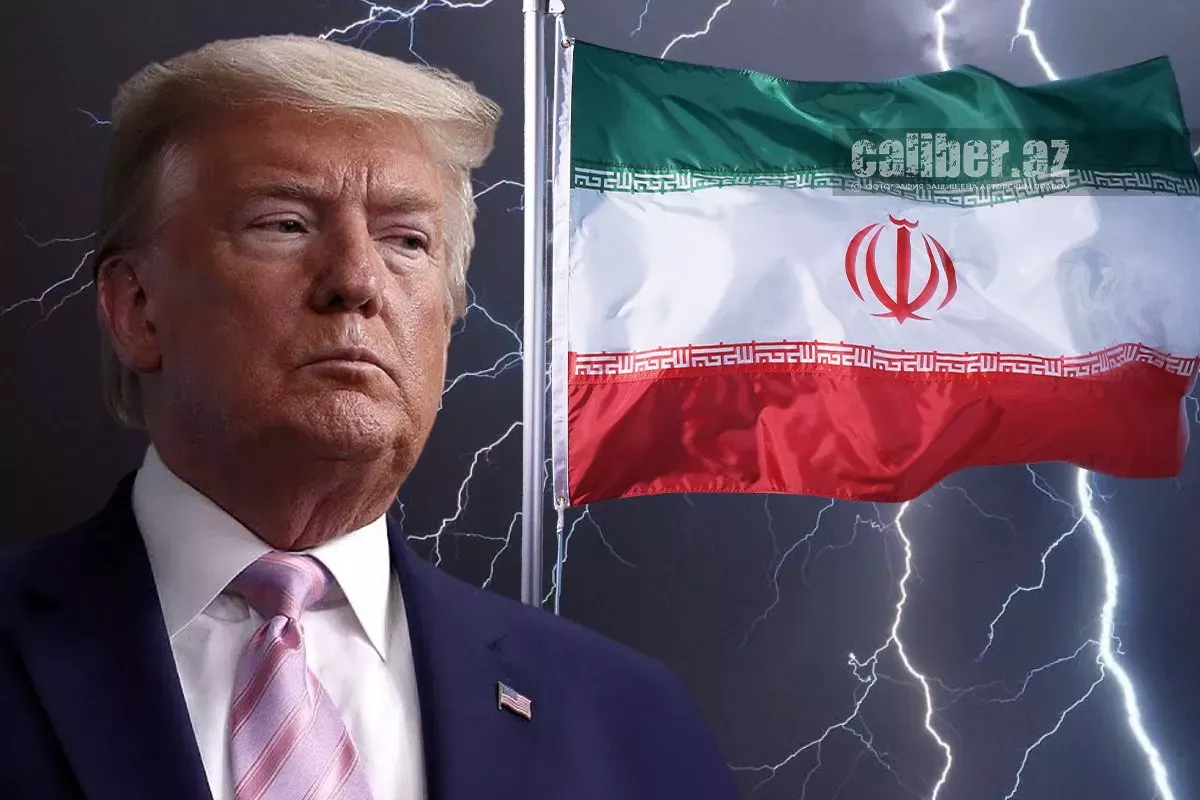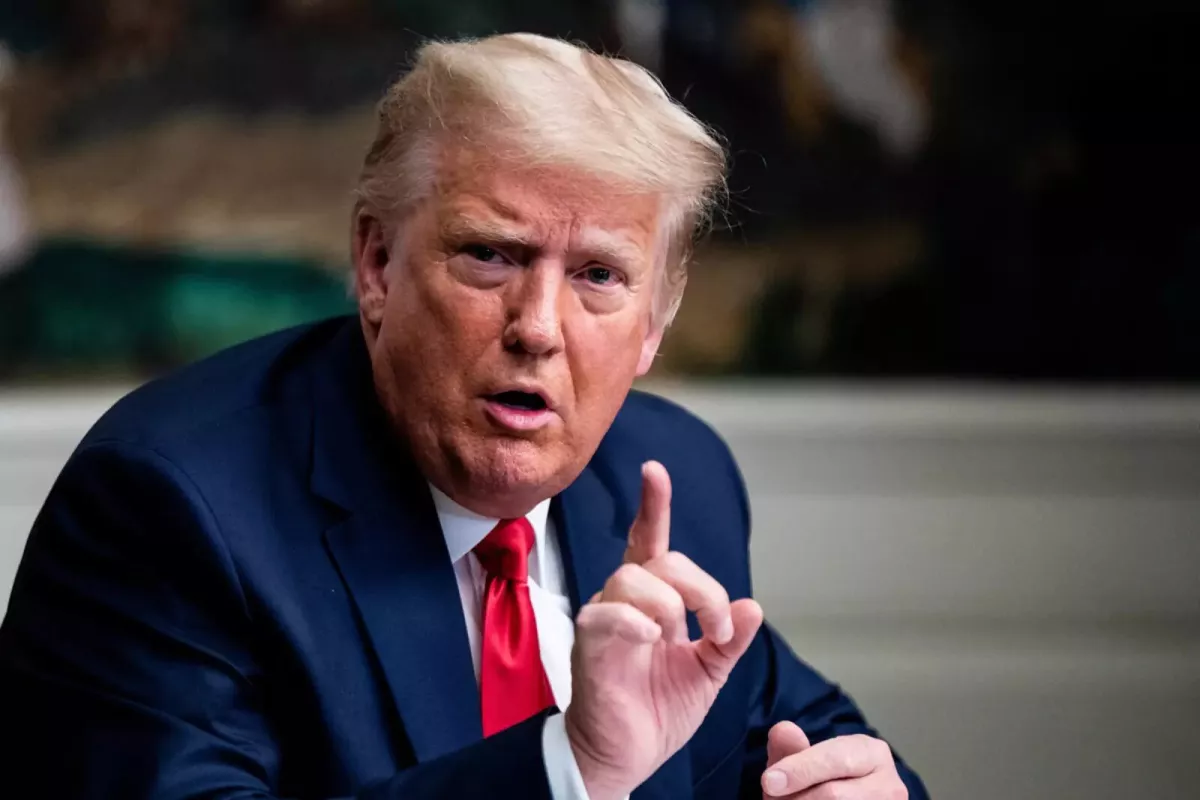Iran’s nuclear knot Between deterrence diplomacy and military rhetoric
Amid disagreements surrounding Iran’s nuclear program, the United States and Iran have nearly reached a critical point of intense political confrontation. At least, this grim scenario is currently suggested by the sharp statements from official representatives in Tehran and Washington. Although Omani Foreign Minister Badr al-Busaidi, who acts as a mediator between the parties, stated that the sides achieved “certain, but not final progress” following the fifth round of talks held on May 23, the messages exchanged by both sides do not inspire much optimism.
To recall: Iran and the U.S. have conducted five rounds of indirect negotiations on the nuclear dossier of the Islamic Republic of Iran and are preparing for the sixth round, scheduled for June 15 in the Omani capital, Muscat.
On the podcast Pod Force One by the New York Post, President Donald Trump stated that he is against armed conflict with Iran but doubts the possibility of reaching a deal to resolve the disagreements over Iran’s nuclear program.
“They seem to be delaying, and I think that's a shame, but I'm less confident now than I would have been a couple of months ago. Something happened to them, but I am much less confident of a deal being made [...] Well, if they don't make a deal, they're not going to have a nuclear weapon, right? If they do make a deal, they're not going to have a nuclear weapon too, you know, but they're not going to have a nuclear weapon, so it's not going to matter from that standpoint. But it would be nicer to do it without warfare, without people dying. It's so much nicer to do it. But I don't see the same level of enthusiasm for them to make a deal. I think they'd make a mistake, but we'll see, I guess. Time will tell,” said the U.S. president.
Earlier, Donald Trump had not ruled out strikes against Iran if the nuclear program negotiations failed to produce results.

The Times of Israel reported that General Michael Kurilla, head of the U.S. Central Command for the Middle East, told the House of Representatives that he had prepared a strike plan against Iran and submitted it to Defense Secretary Pete Hegseth and President Donald Trump. According to Radio Free Europe/Radio Liberty, the American general later confirmed this readiness to act during a session of the House Armed Services Committee.
On June 1, the White House announced that U.S. President’s special envoy Steven Witkoff had sent the Iranian government a “detailed and acceptable” proposal regarding Tehran’s nuclear program, which, according to Axios, included an agreement to maintain uranium enrichment at low levels for a period of time that had not yet been determined. However, by June 7, Trump stated that Tehran should not engage in uranium enrichment; otherwise, the Islamic Republic would face consequences from Washington.
In fact, the United States has effectively vetoed Iran’s nuclear developments, while disregarding Tehran’s preconditions. The Iranian Foreign Ministry has stated that the government is willing to discuss limiting the volume and level of uranium enrichment with the U.S. if all sanctions are fully lifted, but it will never agree to dismantle its nuclear program.
Moreover, the Islamic Republic appeals to the fact that the right to peaceful nuclear energy is guaranteed to all countries that have signed the Treaty on the Non-Proliferation of Nuclear Weapons (NPT), which Tehran was among the first to join. This is a key argument of the Iranian side, one that does not contradict the norms and principles of international law and grants the country the right to continue its nuclear developments.
On the other hand, while Tehran previously patiently awaited a relaxation of U.S. sanctions policy, over the past two to three years Iranian authorities have begun demanding concrete guarantees from the White House in exchange for certain concessions on their nuclear program. Iran has repeatedly hinted to the United States that it expects sanctions to be lifted, reminding Washington of its obligations under the Joint Comprehensive Plan of Action (JCPOA).
However, it appears that a revision of sanctions policy toward Iran is not on the agenda for the U.S. and its Western partners. The rise to power of Donald Trump in the United States has only further solidified this reality.

Based on everything stated above, the following conclusions suggest themselves. The first and most likely is that Iran will not stop uranium enrichment nor abandon this national goal despite U.S. threats of possible military confrontation. Another large-scale war in the Middle East is not in the interests of the United States, and Iran fully understands this. However, it is not excluded that in the worst-case scenario the U.S. might carry out preemptive strikes on strategic Iranian targets, but nothing beyond that.
The second conclusion is that Iran also understands that neither the U.S. nor Israel will allow it to develop nuclear weapons. Therefore, Tehran will insist on easing sanctions in exchange for lowering uranium enrichment levels, while the United States will tighten sanctions further in an effort to force the Islamic Republic of Iran into stricter economic constraints. Will the parties be able to reach common ground during the sixth round of negotiations this week, assuming it takes place at all? It seems unlikely.

A similar opinion is shared by Lana Ravandi-Fadai, senior research fellow at the Institute of Oriental Studies of the Russian Academy of Sciences, candidate of historical sciences, and associate professor of the Department of Contemporary East and Africa at the Russian State University for the Humanities (RSUH). In a comment to Caliber.Az, the expert ruled out the possibility of a military conflict between the U.S. and Iran.
“I believe that a military conflict between the United States and the Islamic Republic is most likely impossible. Donald Trump’s position in his second term has significantly softened compared to the ‘hawkish’ policies of his first administration, which even led to the assassination of the key IRGC general Qasem Soleimani, not to mention the extremely harsh sanctions that reduced Iranian oil exports by about tenfold. Now, on the contrary, Iran is counting on a significant easing of sanctions during the recently started negotiations with the U.S. Within the country, pragmatists have gained influence, represented by President Pezeshkian, who convinced Supreme Leader Khamenei to authorise talks with the U.S.
As for the possibility of a war between Iran and Israel, the situation is much less clear-cut. Benjamin Netanyahu has repeatedly expressed his desire to overthrow the Islamic regime in Iran. While he previously hoped that the U.S. president would approve this idea and give the green light to destroy, for example, Iranian nuclear facilities, the Trump administration is now compelled to temper Netanyahu’s enthusiasm, as without clear U.S. support, it is unlikely he would risk a full-scale war with the Islamic Republic. Although, to boost his popularity, the Israeli prime minister might strike certain Iranian military targets, Iran would respond in kind. However, as was the case last year, both sides will likely try to avoid causing each other too much damage so as not to escalate the situation. At least, this is how I currently see the possible developments, although I would add that the Middle East has become utterly unpredictable in recent years, and many expert forecasts collapse due to the rapidly changing reality,” said Ravandi-Fadai.








